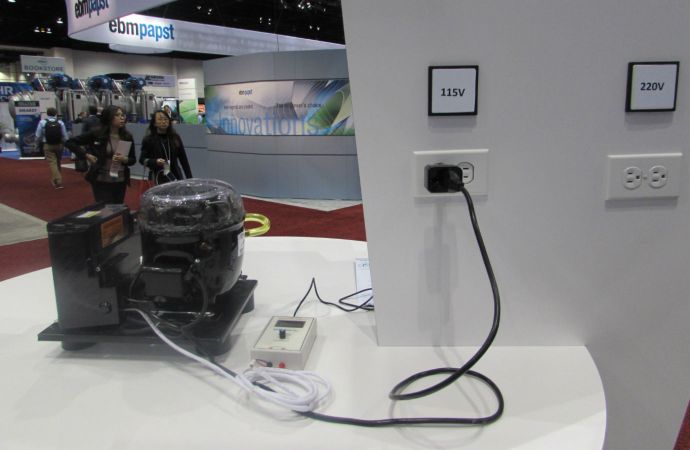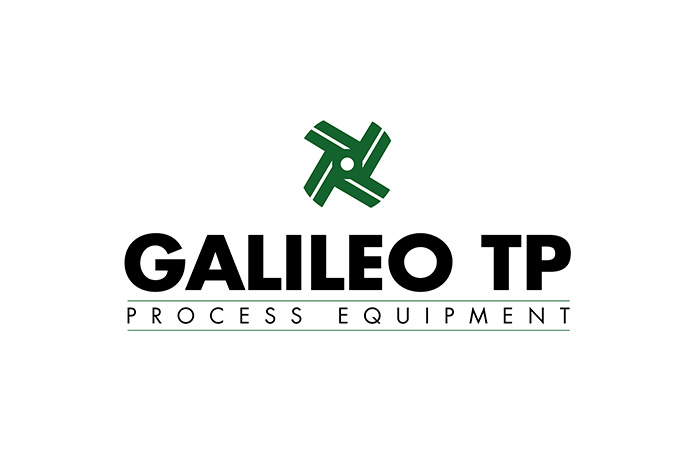Strolling through the AHR Expo’s aisles in Dallas, the question if hydrocarbons will come to the USA seems to be answered in the affirmative, with several manufacturers preparing for major market announcements later this year. However, when exactly the breakthrough will happen will also depend on unsolved regulatory issues holding back HCs in residential and light-commercial applications. + VIDEO + PHOTOS

Traditionally with a bigger focus on air conditioning, the 65th AHR Expo, held from 28 to 30 in Dallas, Texas, also had products for refrigeration using hydrocarbon refrigerants on display. Exhibitors confirmed a growing interest from the market, while safety, servicing and training for hydrocarbon equipment were still highly discussed topics. Manufacturers also confirmed that the technology is not an issue and ready. However, standards and regulatory restrictions still exert a strong influence on a faster market uptake.
More than 51,000 attendees came to see the latest products and technologies on display from over 1,900 exhibiting companies amongst them the following showcasing hydrocarbon products:
Galileo TP: Valerio Pucci, area sales manager at the specialist for leak detection and safety systems for hydrocarbons experienced a boom for hydrocarbon equipment during the last months, especially from US companies that also export outside of the US. Galileo TP showcased their successful and highly accurate automatic evacuating and hydrocarbons charging equipment.
All technical details about the Frigus K here: product fact sheet
View Galileo Partner Page
ComStar/A.S. Trust : New York-based specialty chemical products supplier presents its R441a hydrocarbons refrigerant blend optimised for household refrigerators and freezers, or mobile air-conditioning. ComStar laments that large market players are not yet showing the necessary commitment to the adoption of low global warming HC refrigerants. ComStar is also looking at the Chinese and South American markets to use energy-efficient R22 replacements that avoid a switch to another generation of fluorinated gases.
View ComStar Partner page
RSES: The non-profit education, training and certification association for HVAC+R professionals informed the AHR attendees about latest training programmes for natural refrigerants as well its recently released Hydrocarbon Refrigerants study guide. Designed to assist service technicians in understanding the requirements to safely maintain and service systems that utilise flammable refrigerants, including R-290 and R-600a, it is currently approved under the Environmental Protection Agency’s Significant New Alternatives Policy Program.
Tecumseh: The compressor manufacturer has gone through all necessary safety steps, including UL approval, to verify the viability of its new AE2 hydrocarbon-optimised compressor for light-commercial applications. The model is available in two variations: air-cooled and water-cooled. The water-cooled compressor is able to significantly reduce the charge size, keeping it below the required 150 g limit put forward by the SNAP approval. For those customers without access to water and that don’t require a reduction in refrigerant charge size the air-cooled model has been designed. Both versions have been integrated into a “Celseon” condensing unit platform. States Keith Gifford, Marketing Director North America: “Hydrocarbons are coming whether we like it or not”, before adding that just by replacing the fluorinated refrigerant R134a with R290 in a standard system without any other modifications energy efficiency improvements of 9-15% would be achievable. Gifford mentions wrong perceptions as a major barrier to the wide uptake of HCs, where customers and suppliers likewise would choose the “easy path” to continue using HFCs without having a true understanding of the indeed manageable risk of using HCs. With support from the legislation side to lift unnecessary restrictions for HC use, Gifford is confident that it “could be the year of hydrocarbons”.
Part 2 of this article is coming soon
More than 51,000 attendees came to see the latest products and technologies on display from over 1,900 exhibiting companies amongst them the following showcasing hydrocarbon products:
Galileo TP: Valerio Pucci, area sales manager at the specialist for leak detection and safety systems for hydrocarbons experienced a boom for hydrocarbon equipment during the last months, especially from US companies that also export outside of the US. Galileo TP showcased their successful and highly accurate automatic evacuating and hydrocarbons charging equipment.
All technical details about the Frigus K here: product fact sheet
View Galileo Partner Page
ComStar/A.S. Trust : New York-based specialty chemical products supplier presents its R441a hydrocarbons refrigerant blend optimised for household refrigerators and freezers, or mobile air-conditioning. ComStar laments that large market players are not yet showing the necessary commitment to the adoption of low global warming HC refrigerants. ComStar is also looking at the Chinese and South American markets to use energy-efficient R22 replacements that avoid a switch to another generation of fluorinated gases.
View ComStar Partner page
RSES: The non-profit education, training and certification association for HVAC+R professionals informed the AHR attendees about latest training programmes for natural refrigerants as well its recently released Hydrocarbon Refrigerants study guide. Designed to assist service technicians in understanding the requirements to safely maintain and service systems that utilise flammable refrigerants, including R-290 and R-600a, it is currently approved under the Environmental Protection Agency’s Significant New Alternatives Policy Program.
Tecumseh: The compressor manufacturer has gone through all necessary safety steps, including UL approval, to verify the viability of its new AE2 hydrocarbon-optimised compressor for light-commercial applications. The model is available in two variations: air-cooled and water-cooled. The water-cooled compressor is able to significantly reduce the charge size, keeping it below the required 150 g limit put forward by the SNAP approval. For those customers without access to water and that don’t require a reduction in refrigerant charge size the air-cooled model has been designed. Both versions have been integrated into a “Celseon” condensing unit platform. States Keith Gifford, Marketing Director North America: “Hydrocarbons are coming whether we like it or not”, before adding that just by replacing the fluorinated refrigerant R134a with R290 in a standard system without any other modifications energy efficiency improvements of 9-15% would be achievable. Gifford mentions wrong perceptions as a major barrier to the wide uptake of HCs, where customers and suppliers likewise would choose the “easy path” to continue using HFCs without having a true understanding of the indeed manageable risk of using HCs. With support from the legislation side to lift unnecessary restrictions for HC use, Gifford is confident that it “could be the year of hydrocarbons”.
Part 2 of this article is coming soon
MORE INFORMATION
Related stories

_1477296886.png)




